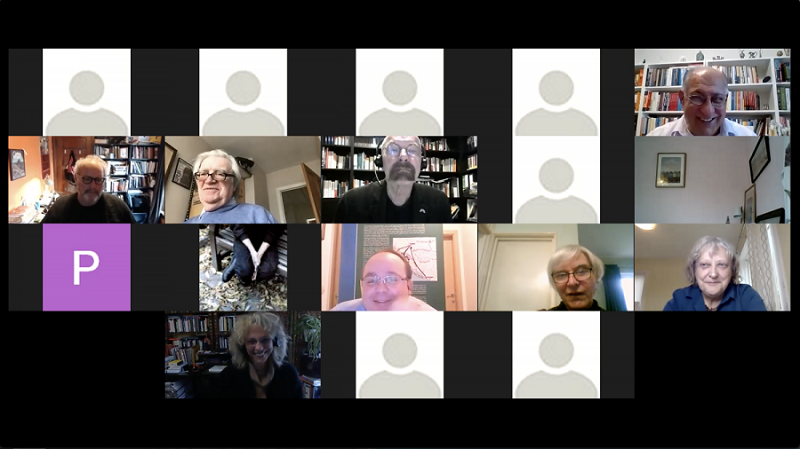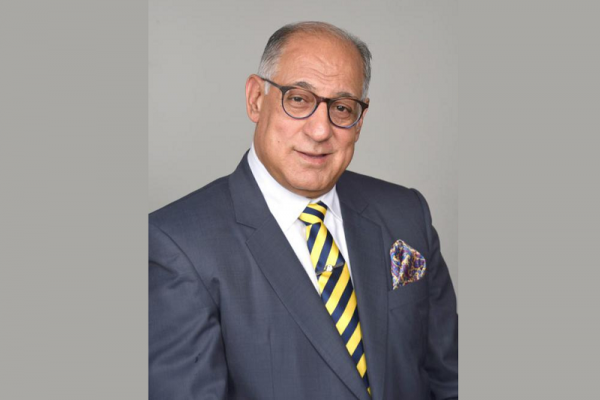In 2021, the Roma Research Centre was established at the University of Silesia in Katowice; it is a new scientific initiative originated by Prof. Hristo Kyuchukov, a researcher and educational employee at the Faculty of Arts and Educational Science, an expert on Psycholinguistics and education of the youth in Europe. Prof. Hristo Kyuchukov is a Bulgarian of Roma origin. He is fluent in Turkish, Roma, Russian, and English; he also speaks German, Slovakian, Serbian, Arabic, Spanish, and Polish. His journey with education has started from working as a teacher in a Bulgarian primary school, and later he has been developing his scientific career at many European universities. He has been associated with the University of Silesia since 2017; he teaches linguistics and intercultural education.
Katarzyna Stołpiec: Professor, how did the initiative of the Roma Research Centre begin?
Prof. dr hab. Hristo Kyuchukov: The concept has had its origin when I was working at the St. Cyril and St. Methodius University of Veliko Tarnovo in Bulgaria. I was teaching Roma students at that time. Seeing their engagement and interest in studies, I have thought about creating a place for them, which will serve them and other people to get to know Roma mentality from a scientific point of view. The idea was enthusiastically received. All the students, active and passive, were engaged in various projects and seemed to enjoy the place, which allows developing their knowledge of Roma culture. The more ambitious began to use specialistic literature they had access to thanks to the Centre. A potential that holds promise has awoken.
K.S.: Is it in that way the Roma Research Center has been established?
H.K.: We could say yes, although it was not yet as clearly defined area as it is now. I gained courage after the meeting with the Indian government’s representative in 2020. During an online conference organised by the Indian Council for Cultural Relations (ICCR), I talked about my work at the University of Silesia. At that time, the CEO of the ICCR, who has also been working at the Ministry for Foreign Affairs, got interested in my work and we were talking about establishing a specialistic centre in the academic environment.
K.S.: Why have you decided to realise your idea at the university in Poland?
H.K.: At the University of Silesia there is a group of scientists who specialise in the field of pedagogy and are interested in the education of other cultures; they teach the youth of other cultures and keep in touch with them. Why would I not try something similar? Moreover, my colleagues from the Faculty, whom I was working with, were very positive towards me, as a person of other nationality and religion. They approved of my ideas and commitment. There were no obstacles to fulfil what I have carried inside me for a long time. I have finally realised that and I am very happy about it.
K.S.: Can we say that you have created a new research field?
H.K.: I do not treat it as a new research field. I want to give bigger space to language, culture, customs, and Roma art; as to say “to let in more fresh air.” The development of this field is needed especially for those, who come from this ethnic group and want to specialise in the field of Roma research. There is no need to hide the fact there is numerous prejudice towards Roma culture. At the end of the 19th century, in 1888 precisely, an international organisation called Gypsy Lore Society was established in England, but nobody dealt with this topic. Throughout the years, there were many fake and harmful beliefs about Roma culture. It was unconscious racism. Many of these beliefs, unfortunately, stayed with us. Today I consider Roma studies not as an important field but as needed. It deals with people who are discriminated against and subject to racism. Many Roma people are blamed for “the entire evilness,” which is obviously unfair and unjust. I would like to stand against prejudice against Roma people and popularise proper models among the academic youth and believe that our students from the University of Silesia will become protagonists against racism and discrimination.
The conference inaugurating the Roma Research Centre activity took place on 25-27 March 2021
K.S.: Where do you think this negative attitude towards Roma people comes from?
H.K.: I think that media play a significant role. News heard on television is treated as something certain. People do not ponder upon the validity of such news. They think that they know everything, and they live their lives with that belief. Unfortunately, such a belief often becomes the reason behind much harm experienced by others. Direct contact with people from the Roma environment may be a remedy to that. When the student cooperation at the University is successful and creative, the relations are well, people become friends. There is no place for discrimination. This is also what the Roma Research Centre is about.
K.S.: The first official conference organised by the Roma Research Centre activity took place on 25-27 March 2021 at the University of Silesia. This event inaugurating the Centre’s activity gathered plenty of scientists from around the world as well as many people interested in this topic.
H.K.: Yes, we immediately jumped on the international level. The Roma Research Centre is characterised by openness towards everybody, other nations, universities, people, their views… That was the spirit of our first conference. During the conference, we wanted to show our friends from Europe who actively participate in the events organised by the Roma Research Centre. Thanks to our sound cooperation, we energise to activity and we have chances to achieve the planned goals.
K.S.: What are the plans for the Roma Research Centre activity?
H.K.: Through the Centre, we want to do our best to support young people – students and PhD students. It is a great satisfaction to observe how young people develop, gather knowledge, and achieve good results. I want to support them and create the possibly best conditions for their development. One of the examples is small scholarships we would like to give to the most outstanding students. However, everything depends on the means we will have at our disposal. I think that with the lapse of time, the Centre’s functioning will be better and better. We do not mean to restrict ourselves. We have a lot of plans and much zeal. I believe that the Roma Research Centre has become a part of the University of Silesia and will contribute to the education of future generations who promote values based on equality, friendship, and mutual solidarity.
K.S.: Thank you for your interview.
Roma studies. Important and needed article was published in the June issue of the University of Silesia Magazine No 9 (289).
Prof. Hristo Kyuchukov From the Faculty of Arts and Educational Science | Photo from the archives of Prof. H. Kyuchukov







